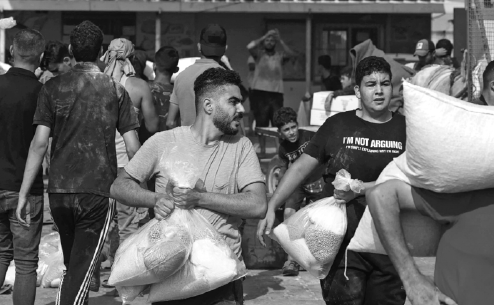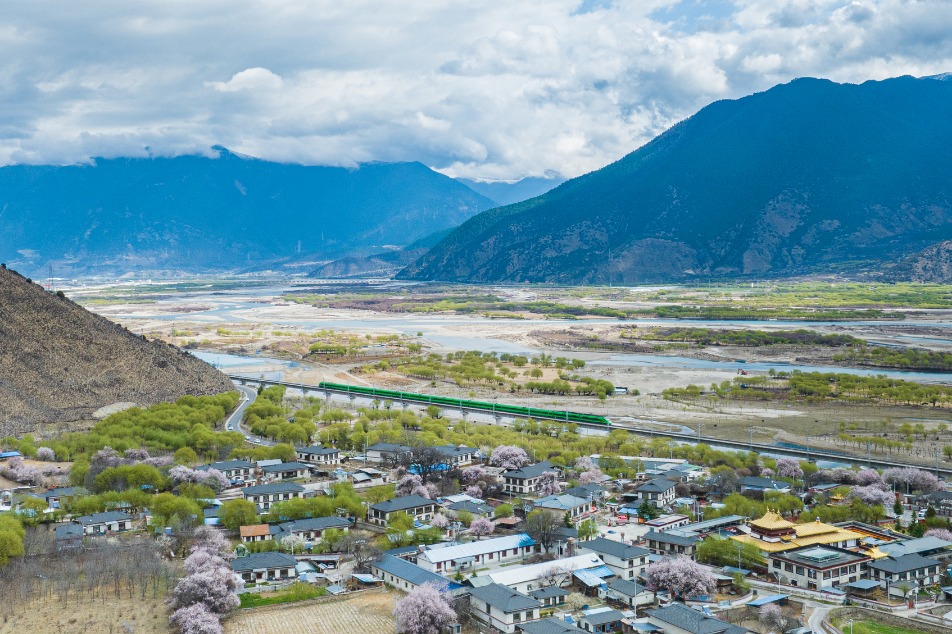Concerns grow over escalation
Israel 'heads into 2nd stage of war' as countries warn of consequences

JERUSALEM/GAZA — Israel's launch of a new phase of military strikes in the Gaza Strip despite a call by the United Nations and others for a truce has intensified calls for a cease-fire as civilians are killed and injured and as fears of a widening conflict grow.
Countries in the region have warned Israel about proceeding with a ground attack.
Israel's Prime Minister Benjamin Netanyahu said in Tel Aviv on Saturday that his country's forces were "heading into the second stage of the war", whose aim would be "destruction of Hamas' military and governing capabilities, and returning the hostages home". Hamas holds more than 200 civilians captive, according to the Israeli military.
Netanyahu said the country's war cabinet and political cabinet "unanimously decided to expand the ground operation" in Gaza, which would be "long and hard" and demanded again that Palestinian civilians evacuate northern Gaza, where Israel is focusing its attack.
The Israeli Defense Forces Chief of Staff Herzi Halevi said on Saturday that the IDF's goals "dictate a ground offensive".
Israeli forces had conducted limited ground operations in recent days in Gaza before what was believed would be a massive ground invasion, Xinhua News Agency reported. More than 300,000 reservists have been called up for duty, many of them amassing along the border with Gaza.
Al-Qassam Brigades, the armed wing of the Islamic Resistance Movement (Hamas), said it was ready to hold talks with Israel on solving the hostage issue, but that Israel had not shown "real seriousness". The Al-Qassam Brigades said the only condition for it to release those it was holding was for Israel to free all Palestinian prisoners, Xinhua reported.
Israel is expanding its ground offensive in the Gaza Strip with intensified airstrikes, the Israeli army said on Sunday.
The Israeli military said in a statement that it carried out more than 450 airstrikes, targeting sites belonging to Hamas, "including operational command centers, observation posts, and anti-tank missile launch posts".
Palestinian media reports said some of the airstrikes targeted the Shifa Hospital, Gaza's largest medical center where tens of thousands were being treated or seeking shelter from Israeli bombardments.
The bombardment over the weekend — described by Gaza residents as the most intense of the conflict — knocked out most communications in the territory late on Friday, largely cutting off the enclave's 2.3 million people from the world. Communications were partially restored on Sunday.
Saudi Arabia's Foreign Ministry said it "condemns and denounces any ground operations carried out by Israel due to the threat they pose to the lives of Palestinian civilians".
Jordan's Foreign Minister Ayman Safadi and the visiting Bahraini Foreign Minister Abdullatif bin Rashid Alzayani stressed the importance of joint Arab action to halt the escalation of the conflict.
On Friday, the UN General Assembly adopted a resolution calling for a humanitarian truce in Gaza.
The resolution called for "an immediate, durable and sustained humanitarian truce leading to a cessation of hostilities", including protection of civilians and civilian subjects, protection of humanitarian personnel and facilities, and "immediate and unconditional release" of all civilians held captive.
Israeli Foreign Minister Eli Cohen rejected the resolution. "We reject outright the UN General Assembly despicable call for a cease-fire," Cohen wrote on X, formerly Twitter.
"Israel will continue to defend itself. Israel will do what must be done to eradicate Hamas' capabilities and bring the hostages home," Israeli UN ambassador Gilad Erdan wrote on X.
UN Secretary-General Antonio Guterres, in a phone call made to Egypt's President Abdel-Fattah al-Sisi on Saturday, talked about the "diplomatic efforts to stop the escalation in the Gaza Strip", the Egyptian presidency said.
West slammed
Iran's President Ebrahim Raisi said on Saturday that the support to Israel by some Western countries, in particular the United States, had greenlighted its perpetration of "crimes" in Gaza. He made the remarks in a phone call with Qatari Emir Sheikh Tamim bin Hamad Al Thani, a statement on the website of the Iranian president's office said.
Qatar's Foreign Minister Mohammed bin Abdulrahman Al Thani said an "Israeli ground escalation will have dire results for civilians and devastating humanitarian and economic dimensions".
Leaders of the Association of Southeast Asian Nations members have condemned attacks against civilians, calling for humanitarian aid and a peaceful resolution of the conflict with a view to realizing the two-state solution based on pre-1967 borders.
Israel's launch of ground operations in Gaza over the weekend may raise further concerns but possibly divide the bloc, said Awang Azman Awang Pawi, associate professor in the Academy of Malay Studies at the University of Malaya in Kuala Lumpur.
Bilveer Singh, associate professor of political science at the National University of Singapore, said the West, especially the US, is "condoning and assisting the Israeli aggression".
"The US and West (influence) will be greatly weakened in the region", Singh told China Daily.
More than 8,000 Palestinians had died as a result of Israeli military strikes on the Gaza Strip, according to the Hamas-run Health Ministry. In the occupied West Bank, more than 110 Palestinians have been killed in violence and Israeli raids, The Associated Press reported.
About 30 UN aid employees and more than a dozen journalists were reported to have died as a result of the Israeli bombing.
About 1,400 Israelis have been killed, most of them in the Hamas offensive three weeks ago.
Prime Sarmiento in Hong Kong contributed to this story.
Xinhua - Agencies

Today's Top News
- China exempts childcare subsidies from individual income tax
- Xi stresses building modern socialist new Xizang
- Xi arrives in Lhasa for celebrations of 60th founding anniversary of Xizang autonomous region
- Xi to review troop formations lining up along Chang'an Avenue during V-Day parade
- The great power game behind the Alaska summit
- Tariffs and the new geopolitics of the Amazon






























